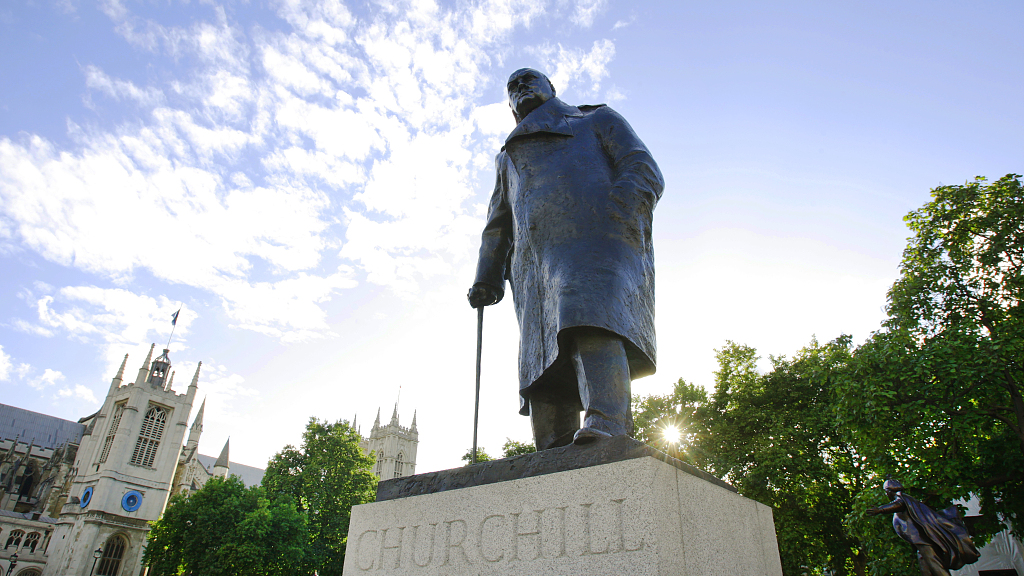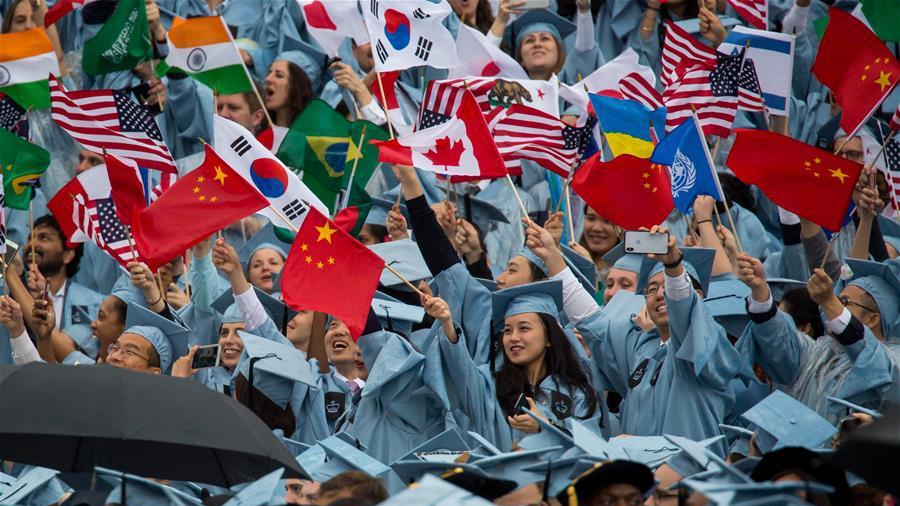
The Statue of Winston Churchill, Parliament Square, London, UK. /VCG
The Statue of Winston Churchill, Parliament Square, London, UK. /VCG
Editor's note: Daryl Guppy is an international financial technical analysis expert. He has provided weekly Shanghai Index analysis for the Chinese mainland media for more than a decade. Guppy appears regularly on CNBC Asia and is known as "The Chart Man." He is a national board member of the Australia China Business Council. The article reflects the author's opinions, and not necessarily the views of CGTN.
Never has there been a more critical time for keeping communication lines open to develop an understanding of China, and not since the Cold War has it been more difficult to do this.
The media is aflame with allegations, misinterpretations, racism and vilification. Faults lie on both sides.
Reflecting on World War II, British Prime Minister Winston Churchill observed that the greatest challenge was to fight the fascists without deploying the tools of the fascist state. This was Churchill's dilemma.
This is a particular burden of obligation borne by liberal societies. Their very liberalism makes them vulnerable to extremes of both the right and the left, and it's their very liberalism that gives faith in the ability to find a middle ground.
The free discussion, expression and testing of ideas requires open lines and methods of communication. It is the essential obligation of liberal democratic societies. Constrain this obligation and they cease to be both liberal, and ultimately, democratic.
Although Churchill was a strong believer in the value of secret intelligence, he also understood that fascism could not be defeated by creating an equivalent of the Gestapo, by burning books, or suspending civil liberties with secret trials.
He recognized that a society where policy was dominated by the security services was incompatible with a democratic society. It took great political and moral courage to take this stance when British cities were being bombed in the blitz.
Ultimately, it was the refusal to deploy fascist techniques at home and abroad that was the real savior of liberal and democratic ideals.
It is difficult to understand how the suspension of student and academic visas serves the purpose of encouraging debate and discussion which are the key foundations of any democratic society.
It is difficult to understand how stifling public discussion on the spurious grounds of national security contributes to an informed understanding of the political environment. It is difficult to understand how the demonization of alternative views and aspirations serves to develop a balanced perspective. Vilifying someone whose views are not the same as yours does not automatically make them a spy.
An understanding of language and culture is the foundation of peaceful coexistence. To suggest that a study institute focused on Western history is acceptable whilst a similar study institute focused on Asian or Chinese history is somehow subversive is to reject the very notion of education, learning and the challenge of reaching informed opinions.
At university, I read the history of Nazism and the political philosophy of the U.S. constitutional founder, Thomas Jefferson. Despite my study, I hold no truck with fascism, but the study of its philosophy and practice allows me to more quickly recognize the slide toward this ideological straitjacket where outrageous lies underpin public policy.
These issues are all at the core of Churchill's dilemma and it's a choice between informed intelligent discussion and propaganda driven policy.

Graduates of School of International and Public Affairs (SIPA) wave flags during the commencement ceremony of the 264th Academic Year of Columbia University in New York, U.S., May 16, 2018. /Xinhua
Graduates of School of International and Public Affairs (SIPA) wave flags during the commencement ceremony of the 264th Academic Year of Columbia University in New York, U.S., May 16, 2018. /Xinhua
There are legitimate concerns around security, protection of state secrets, and countering foreign influence, but when this seeps out into a populist context they are magnified and often fail the test of legitimacy.
As arch-conservative, Samuel Johnston, noted in 1774, policy cloaked in patriotism is the last refuge of the scoundrel.
When these legitimate concerns are taken up as cudgels and used to constrain and frame policy debate then, as Churchill recognized, the democracies take a step incompatible with the very freedoms they profess to support.
It is challenging to develop an informed and appropriate understanding of China, its policies and action. Without open lines and means of communication that challenge becomes even greater.
It is much more challenging than developing the same understanding of liberal democracies like Germany or the UK, but that is not a reason to abandon the challenge.
The task requires us to dig deeper, to examine in good faith the alternative views of the way society is structured. Examination and discussion ought not be confused with acceptance or submission. Nor, as the Americans found in Vietnam, are hearts and minds won by blunt force trauma. What is required is balance. Balance requires open discussion and open discussion requires an arena of competing views with better communication channels.
The resolution of Churchill's dilemma is as urgent today as it was in 1941, and it is not achieved by gagging the tools of discussion which prevent understanding.
(If you want to contribute and have specific expertise, please contact us at opinions@cgtn.com.)